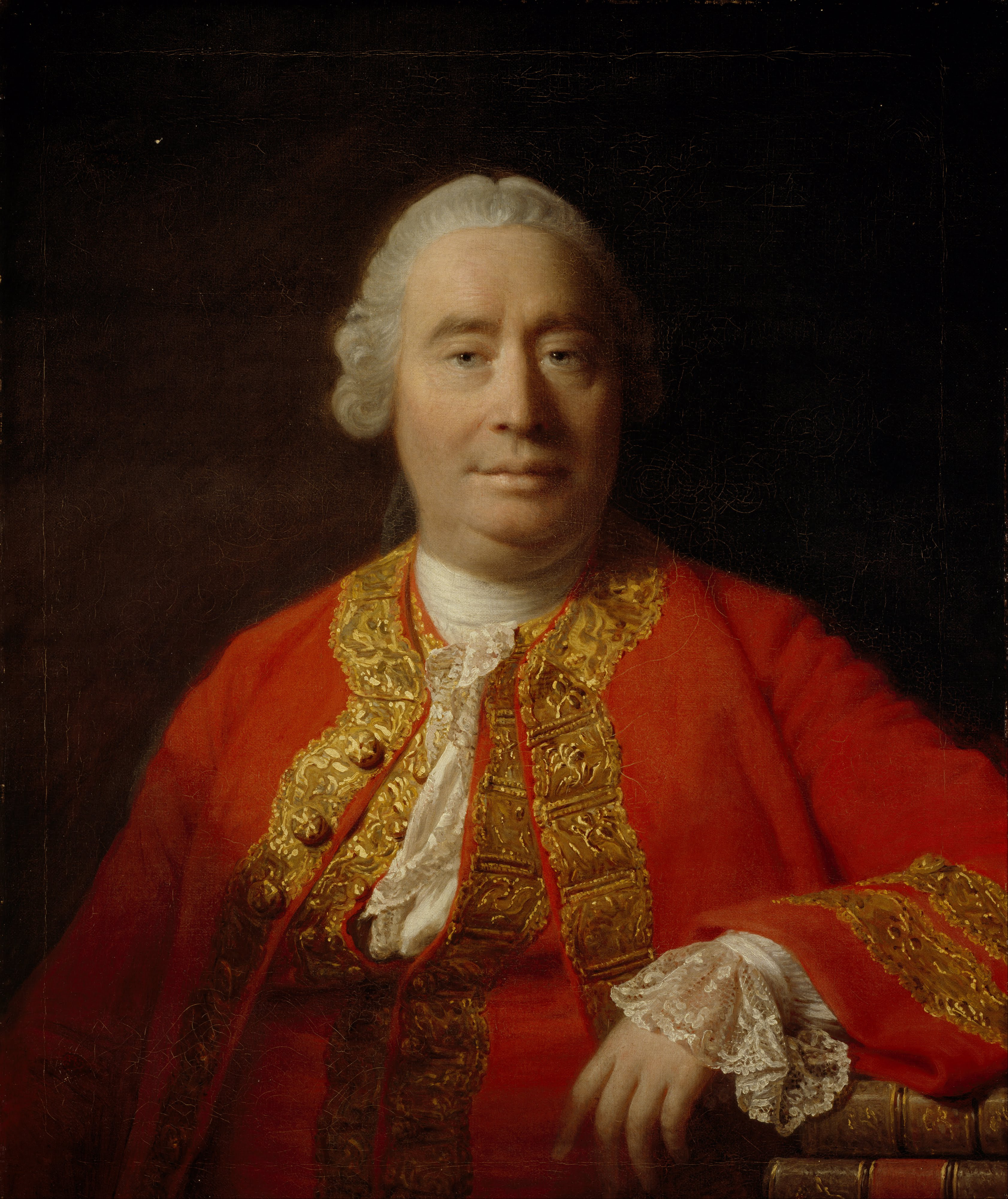David Hume frasi celebri
Trattato sulla natura umana
dal Trattato sulla natura umana; citato in Barbara De Mori, Che cos'è la bioetica animale, Carocci 2007, p. 26
Trattato sulla natura umana
Frasi sugli uomini di David Hume
citato in Gianni Scipione Rossi, Razzismo. Il buio della ragione nel secolo dei lumi
Origine: Da Sul suicidio, in Opere, a cura di E. Lecaldano, Laterza, Roma-Bari, 1987, vol. III.
Storia naturale della religione
Origine: Incipit de Il suicidio, in Il suicidio e altri saggi morali, Laterza, 2008, p. 3.
II, II, 12; 1994, p. 703
Trattato sulla natura umana
Frasi su come pensare di David Hume
Trattato sulla natura umana
Trattato sulla natura umana
da Dialoghi sulla religione naturale
I, III, 16; 1994, p. 696
Trattato sulla natura umana
David Hume Frasi e Citazioni
“L'abitudine […] è la grande guida della vita umana.”
Origine: Da Ricerche sull'intelletto umano, 5, 1; citato in Dizionario delle citazioni, a cura di Ettore Barelli e Sergio Pennacchietti, BUR, 2013.
Origine: Da Ricerca sui principi della morale, pp. 41-43.
Storia naturale della religione
“Ogni superstizione è sempre odiosa e gravosa.”
Storia naturale della religione
“L'uomo davvero virtuoso compie il suo dovere senza sforzo.”
Storia naturale della religione
Storia naturale della religione
Origine: Da Dialoghi sulla religione naturale, prologo, p. 115.
I, III, 16; 1994, p. 697
Trattato sulla natura umana
“Sii filosofo; ma in mezzo a tutta la tua filosofia, sii sempre un uomo.”
Origine: Da Ricerca sull'intelletto umano, sez. I; citato in Guido Ceronetti, La pazienza dell'arrostito: giornale e ricordi (1983-1987), Adelphi, Milano, 1990, p. 68. ISBN 88-459-0793-7
II, I, 12; 1994, p. 700
Trattato sulla natura umana
II, II, 12
Trattato sulla natura umana
Origine: Citato in Aa.Vv., Etica e animali, Liguori Editore, Napoli, 1998, pp. 69-70. ISBN 88-207-2686-6
Origine: Citato in Giovanni Reale, Dario Antiseri, Il pensiero occidentale dalle origini ad oggi, 2, Dall'Umanesimo a Kant, 2. ed., La Scuola, Brescia, 1983, p. 414.
Origine: Citato in AA.VV., Il libro dell'economia, traduzione di Olga Amagliani e Martina Dominici, Gribaudo, 2018, p. 47. ISBN 9788858014158
David Hume: Frasi in inglese
Part 4, Section 3
A Treatise of Human Nature (1739-40), Book 1: Of the understanding
Section 4 : Sceptical Doubts Concerning The Operations of The Understanding
An Enquiry Concerning Human Understanding (1748)
Part 2, 1.17
A Treatise of Human Nature (1739-40), Book 3: Of morals
Statement to a friend shortly before his death, as recounted in Men of Letters by Lord Henry Brougham
Part X - With regard to courage or abasement
The Natural History of Religion (1757)
Part I, Essay 23: Of The Standard of Taste
Essays, Moral, Political, and Literary (1741-2; 1748)
Part 4, Section 5
A Treatise of Human Nature (1739-40), Book 1: Of the understanding
Of Liberty and Necessity, Part II (http://www.bartleby.com/37/3/12.html)
An Enquiry Concerning Human Understanding (1748)
Contesto: THERE is no method of reasoning more common, and yet none more blameable, than, in philosophical disputes, to endeavour the refutation of any hypothesis, by a pretence of its dangerous consequences to religion and morality. When any opinion leads to absurdities, it is certainly false; but it is not certain that an opinion is false, because it is of dangerous consequence. Such topics, therefore, ought entirely to be forborne; as serving nothing to the discovery of truth, but only to make the person of an antagonist odious.
Part I, Essay 8: Of Public Credit (This appears as a footnote in editions H to P. Other editions include it in the body of the text, and some number it Essay 9.)
Essays, Moral, Political, and Literary (1741-2; 1748)
Section 12 : Of the Academical or Sceptical Philosophy Pt. 3
An Enquiry Concerning Human Understanding (1748)
Part 1, Section 12
A Treatise of Human Nature (1739-40), Book 2: Of the passions
Part XV - General corollary
The Natural History of Religion (1757)
“Art may make a suit of clothes; but nature must produce a man.”
Part I, Essay 15: The Epicurean
Essays, Moral, Political, and Literary (1741-2; 1748)
E. C. Mossner, Life of David Hume (Clarendon Press, 2001), p. 311.
Section 10 : Of Miracles Pt. 2
An Enquiry Concerning Human Understanding (1748)
Letter 138, To Gilbert Elliot of Minto; August 9, 1757
Part 3, Section 12
A Treatise of Human Nature (1739-40), Book 1: Of the understanding
Part I, Essay 9: Of The Parties of Great Britain; final lines of this essay in the 1741 and 1742 editions of Essays, Moral and Political, they were not included in later editions.
Essays, Moral, Political, and Literary (1741-2; 1748)
Philo to Cleanthes, Part IV
Dialogues Concerning Natural Religion (1779)
Part 4, Section 6
A Treatise of Human Nature (1739-40), Book 1: Of the understanding
Part I, Essay 16: The Stoic
Essays, Moral, Political, and Literary (1741-2; 1748)
§ 8.23
An Enquiry Concerning Human Understanding (1748)
Part XIV - Bad influence of popular religions on morality
The Natural History of Religion (1757)
Part 2, Section 12
A Treatise of Human Nature (1739-40), Book 2: Of the passions
Part 1, Section 4
A Treatise of Human Nature (1739-40), Book 2: Of the passions
Pamphilus to Hermippus, Prologue
Dialogues Concerning Natural Religion (1779)
§ 4.8
An Enquiry Concerning Human Understanding (1748)
Part I, Essay 22: Of the Standard of Taste
Essays, Moral, Political, and Literary (1741-2; 1748)
Demea to Philo, Part X
Dialogues Concerning Natural Religion (1779)
